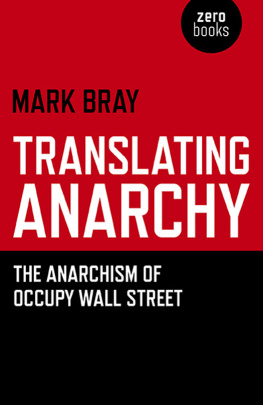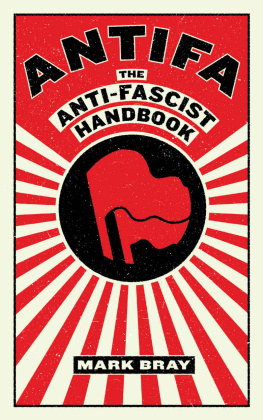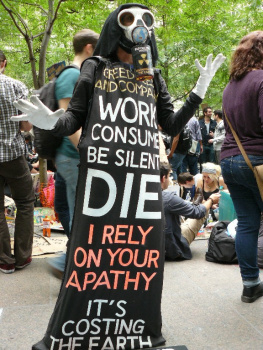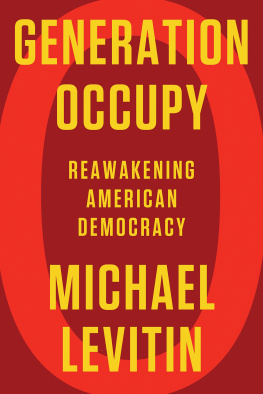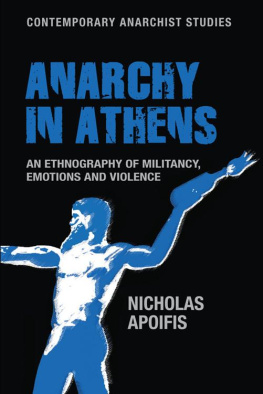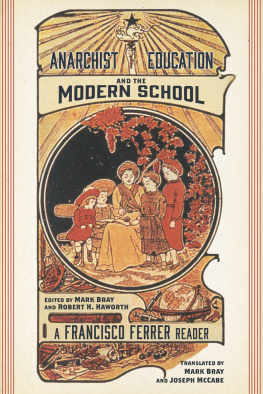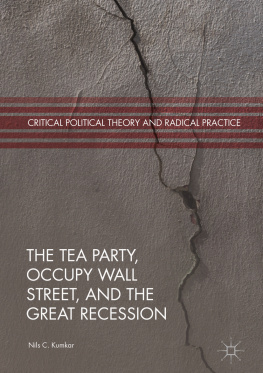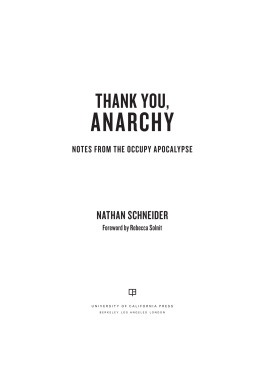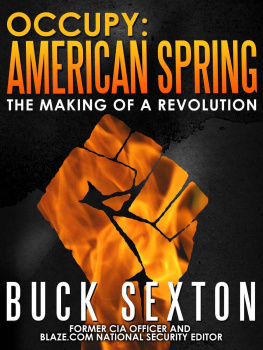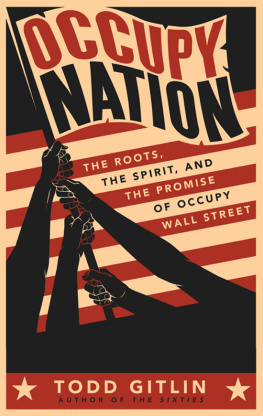Mark Bray - Translating Anarchy: The Anarchism of Occupy Wall Street
Here you can read online Mark Bray - Translating Anarchy: The Anarchism of Occupy Wall Street full text of the book (entire story) in english for free. Download pdf and epub, get meaning, cover and reviews about this ebook. City: New Alresford, year: 2013, publisher: CLC Wholesale, National Book Network, Orca Book Services, John Hunt Publishing;Zero Books, genre: Politics. Description of the work, (preface) as well as reviews are available. Best literature library LitArk.com created for fans of good reading and offers a wide selection of genres:
Romance novel
Science fiction
Adventure
Detective
Science
History
Home and family
Prose
Art
Politics
Computer
Non-fiction
Religion
Business
Children
Humor
Choose a favorite category and find really read worthwhile books. Enjoy immersion in the world of imagination, feel the emotions of the characters or learn something new for yourself, make an fascinating discovery.
Translating Anarchy: The Anarchism of Occupy Wall Street: summary, description and annotation
We offer to read an annotation, description, summary or preface (depends on what the author of the book "Translating Anarchy: The Anarchism of Occupy Wall Street" wrote himself). If you haven't found the necessary information about the book — write in the comments, we will try to find it.
Translating Anarchy tells the story of the anti-capitalist anti-authoritarians of Occupy Wall Street who strategically communicated their revolutionary politics to the public in a way that was both accessible and revolutionary. OWS organizer Mark Bray combines his direct experience in the movement with nearly 200 interviews with the most active, influential architects of Occupy Wall Street, to reveal the revolutionary anarchist core of Occupy. Although The New York Times and CNN thought that OWS simply wanted tighter financial regulations and a millionaires tax, Bray shows that the vast majority of organizers called for the abolition of capitalism altogether.
By translating their ideas into everyday concepts like community empowerment and collective needs, these anarchists sparked the most dynamic American social movement in decades.
**
ReviewIn Translating Anarchy Mark Bray provides unique insight into the inner workings and politics of OWS and its interactions with the press and the public. Straightforward and non-academic but in fact scholarly and historically informed, it provides an often witty good read. It is a must-read for anyone who wants to understand the OWS phenomenon or who may ever interpret social movements for the public and the media. -Jeremy Brecher, author of Strike!
Brays meticulous, rich insider account of Occupy Wall Street demonstrates the central influence of anarchism on its core militants, but refuses to shy away from drawing hard lessons from its limitations. Anarchism, he convincingly argues, must position itself as an everyday movement of the ordinary folks who alone can change the world - this requires a positive, practical programme and message, self-reflective and accountable politics, solid organization, and clear tactics and strategy. -Lucien van der Walt (Rhodes University), co-author of Black Flame: The Revolutionary Class Politics of Anarchism and Syndicalism
Translating Anarchy is an impressive example of movement analysis, one of the most important books about anarchism of its time, and a must read for anyone studying contemporary anarchism and its implications, challenges, and possibilities. ~ Gabriel Kuhn, editor of Gustav Landauer: Revolution and Other Writings and Erich Mhsam: Liberating Society from the State and Other Writings, Alpine Anarchist Productions
About the Author
Mark Bray is a PhD Candidate in Modern European History at Rutgers University and longtime political activist. He was a core organizer of the Press Working Group of Occupy Wall Street.
Mark Bray: author's other books
Who wrote Translating Anarchy: The Anarchism of Occupy Wall Street? Find out the surname, the name of the author of the book and a list of all author's works by series.

